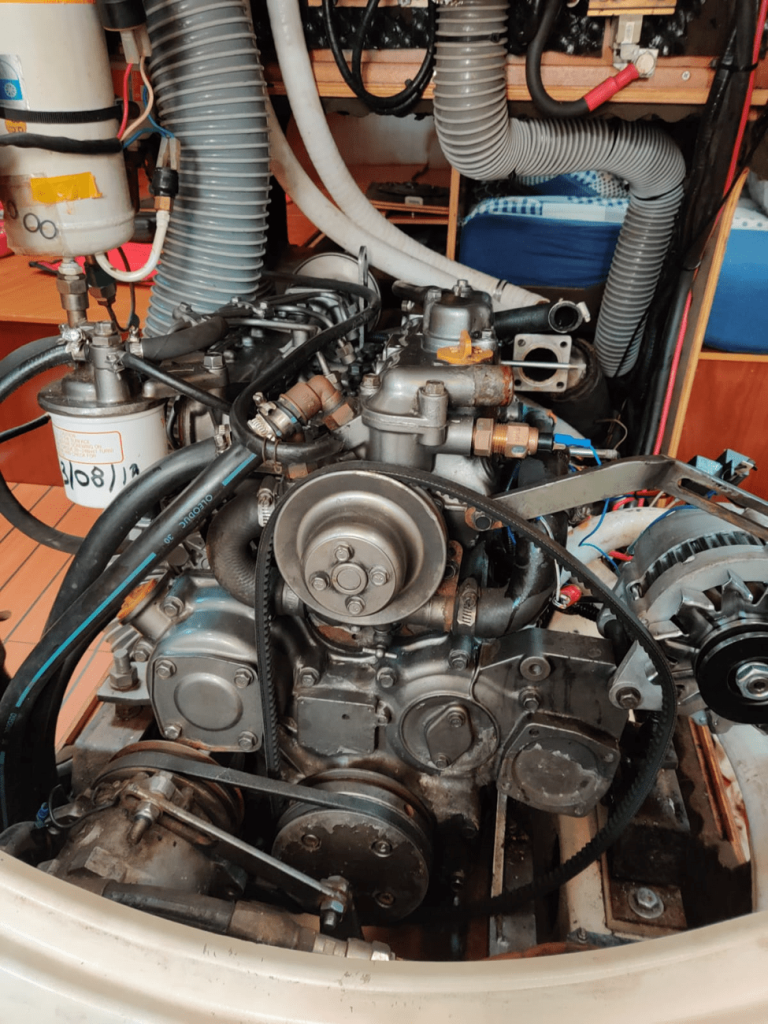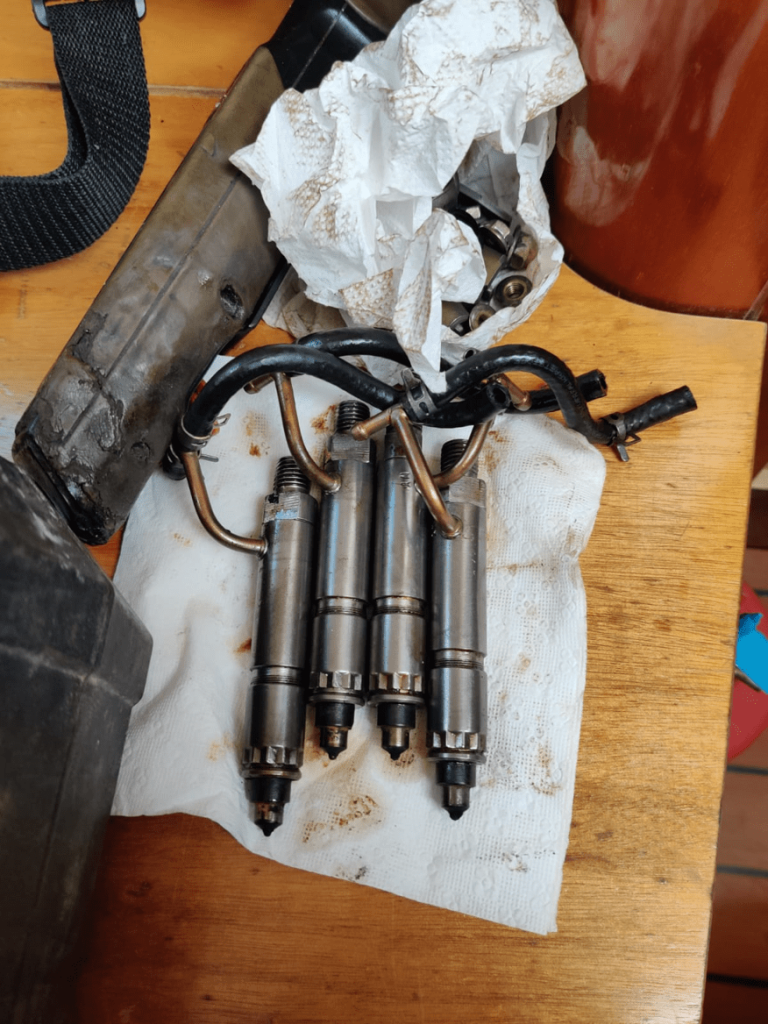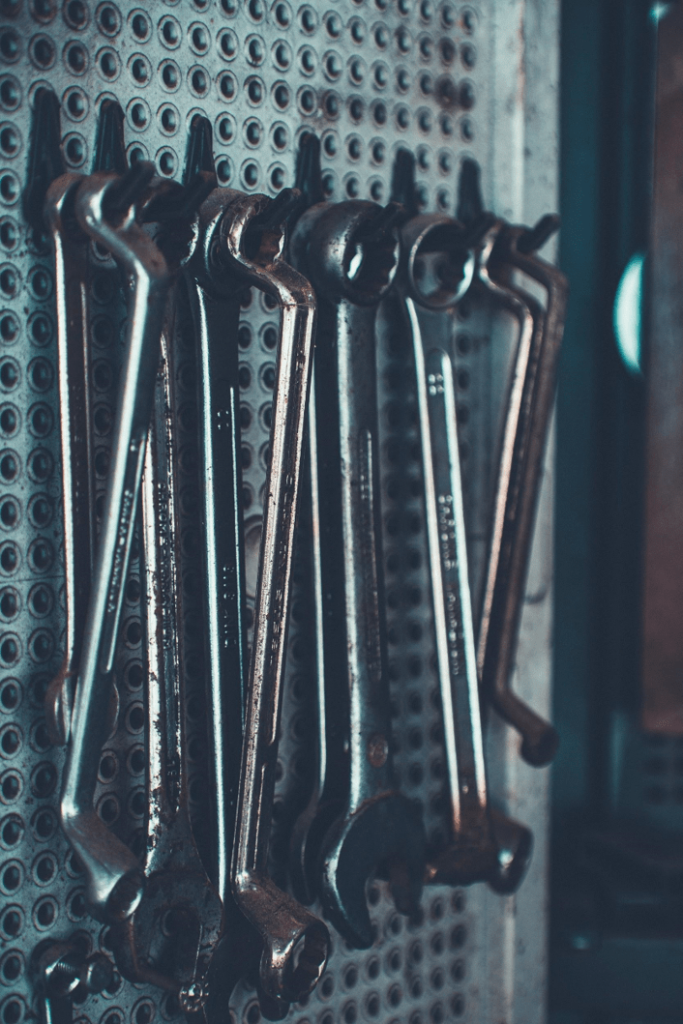If you currently have some free time on your hands, take this as an opportunity to do some maintenance on your own boat. All our boats require some TLC, and if you are ready to get your hands dirty here are some tips and what we were up to!
While sailing you’ll always come up with new solutions, fixes and ideas to optimize your day at sea, and Dovecote has always undergone proper and regular maintenance to ensure she is always at peak performance for our students.
This year we got her up on the hard in December, and our main focus is on her engine: a 54 HP diesel Yanmar. A quick break down is that it’s a 4 cylinder, 8 valve, 4 stroke engine with a direct shaft, aided by a Kanzaki gearbox, with more on that further down.
We cannot stress the importance of thorough engine maintenance as it is a huge element of health and safety while out at sea and trust us, you never want an engine failure out there.
Some things are easy, your regular small fixes which you can all do. Like when you check and change the oil of your car, be sure to use the same habit on your boat’s engine.
The impeller
We recommended to always change the impeller and keeping a spare on board. This 15-minute task is easy to memorize, and you should always keep a good toolbox on board to go through this little fix.
In short, the impeller pumps in cold water to cool down your engine. This tiny but mighty piece is a vital part of your engine as overheating can cause severe damage to your inboard or outboard motors. Inspect this part regularly to check for worn-out vanes or general wear or cracks which may occur as you run your engine.
Other things to keep an eye out on are your timing belts and alternator belts. With the right tools, these are cheap, and easy to fix, meaning no excuses! You might hear a whistling sound as they wear, and just as you do so, get ready to have it changed… but if you do not hear that sound, a quick visual inspection for cracks and worn teeth does the trick too.

Dovecote’s beating heart
From minor fixes to major changes
Dovecote this December underwent some major work with two full overhauls complete. We overhauled the gearbox and can’t wait to see the effects of that and while doing that job also overhauled the engine manifold.
We dismantled the entire gearbox and inspqected each part, cog, gasket or nut for damage. When doing so we also inspected the housing to check for cracks or dents or other unwanted signs of wear and tear. We checked each cog in detail to ensure they will function as if one fails it can lead to a very costly gearbox breakdown.
While getting greasy we also serviced the injectors to ensure she fires up when needed. Fuel Injectors can become jammed or gummed up, especially if low-grade fuel is being used. This can be catastrophic to your engine as it will not be able to deliver fuel to the required zones. You should change these depending on how many miles your engine has run, so check your own instructor’s manual and follow it properly… as the last thing you want is for your injector to fail or to be sending less fuel to the engine.

Time to clean the injectors
With Dovecote laid up on the hard it was also time to sander her hull down and give her a fresh coat of anti-fouling, a process we will detail in a separate blog post.
Packing your toolbox
While stocking your boat ensure you have a fully equipped toolbox for you to be able to do the odd jobs while out at sea, or for you to be able to deal with emergencies. Quick fixes are a regular part of boating, so never be stuck short of tools. Here are the essentials you will need to pack.
- Pliers
- Duct tape
- Screwdriver, and bits
- A set of wrenches, ensuring they fit your engine’s nuts and bolts
- Good cable ties
- Flashlight or marine light
- Spark plugs
- Impeller
- Scissors
- Socket set
- Extra drain plugs
- A Multi-tool
- A sharp knife and a blade

Where necessary, keep spares handy, and lots of spare batteries for your torch. We have also seen chargeable torches which use USB connectors, and these can be handy! If you are using your tools near the sea, you can also tie a floaty key chain to them so that not all is lost if your hand slips.
We also store a lot of extra ropes, as you simply never know! Yours might tear at the wrong moment, or you might need to tow a fellow sailor back to shore. Inspect the ropes regularly, and stow them away nicely, to save time when in an emergency.

